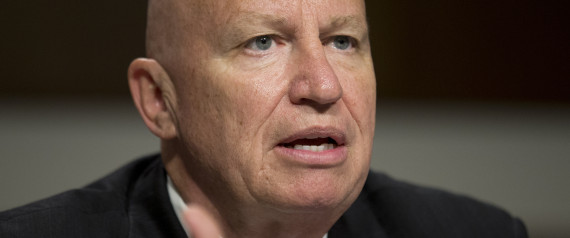WASHINGTON -- The House of Representatives voted Thursday to give a tax break worth $269 billion to the richest few thousand estates in the country, and add that cost to the federal debt.
Called the Death Tax Repeal Act of 2015, the bill would end the nearly 100-year-old federal estate tax. All but three Republicans voted in favor, while all but seven Democrats voted against. The legislation passed 239 to 179.
The measure benefits only the top .2 percent of the population because the other 99.8 percent of the country doesn't own enough wealth to ever pay the tax. Only estates worth more than $10.9 million for couples and $5.4 million for individuals fall under the tax.
Democrats were harshly critical of the bill, saying that it showed Republicans were being hypocritical with their recent expressions of concern for the widening income inequality gap in America.
"Today's vote to repeal the estate tax is just the Republican's last attempt to tilt the U.S. tax code in favor of their ultra wealthy campaign donors," said Rep. Jim McDermott (D-Wash.).
"Today my Republican friends have discovered there’s $270 billion of revenue that somehow the federal government no longer needs," said Rep. Earl Blumenauer (D-Ore.) “They have decided to give an additional tax cut to people who need the help the least."
The Congressional Budget Office calculated the $269 billion figure. It covers the next 10 years without the tax, but the repeal would be indefinite.
Republicans contended that the tax amounts to taking away other people's property, and that it prevents families from passing businesses and farms down to their children.
“It is, at its heart, an immoral tax,” said Rep. Kevin Brady, (R-Texas).
Rep. Kristi Noem (R-S.D.) tried to counter Democratic arguments about growing income inequality by blaming President Barack Obama.
"One-in-five children are on food stamps because of the policies of this administration. Fifty percent of our college students can’t find work or are underemployed because of the policies of this administration," Noem said. "We talk about income inequality, and we are seeing it because of those previous policies. This tax is a very unfair tax."
Not only does the tax affect a small portion of Americans, but most people who are subject to it also pay an effective rate of just 17 percent, rather than the 40 percent technically required, since much of the property involved is taxed at lower rates than ordinary income.
The bill would also effectively repeal capital gains taxes for people with these large estates, allowing investments to be passed down without any taxes on their growth over the years. Heirs would only have to pay taxes on gains made after the date they get the inheritance.
The measure faces an uphill battle in the Senate, where Democrats have enough votes to block it. The White House has also threatened to veto the bill.
Original Article
Source: huffingtonpost.com/
Author: Jesse Rifkin, Michael McAuliff
Called the Death Tax Repeal Act of 2015, the bill would end the nearly 100-year-old federal estate tax. All but three Republicans voted in favor, while all but seven Democrats voted against. The legislation passed 239 to 179.
The measure benefits only the top .2 percent of the population because the other 99.8 percent of the country doesn't own enough wealth to ever pay the tax. Only estates worth more than $10.9 million for couples and $5.4 million for individuals fall under the tax.
Democrats were harshly critical of the bill, saying that it showed Republicans were being hypocritical with their recent expressions of concern for the widening income inequality gap in America.
"Today's vote to repeal the estate tax is just the Republican's last attempt to tilt the U.S. tax code in favor of their ultra wealthy campaign donors," said Rep. Jim McDermott (D-Wash.).
"Today my Republican friends have discovered there’s $270 billion of revenue that somehow the federal government no longer needs," said Rep. Earl Blumenauer (D-Ore.) “They have decided to give an additional tax cut to people who need the help the least."
The Congressional Budget Office calculated the $269 billion figure. It covers the next 10 years without the tax, but the repeal would be indefinite.
Republicans contended that the tax amounts to taking away other people's property, and that it prevents families from passing businesses and farms down to their children.
“It is, at its heart, an immoral tax,” said Rep. Kevin Brady, (R-Texas).
Rep. Kristi Noem (R-S.D.) tried to counter Democratic arguments about growing income inequality by blaming President Barack Obama.
"One-in-five children are on food stamps because of the policies of this administration. Fifty percent of our college students can’t find work or are underemployed because of the policies of this administration," Noem said. "We talk about income inequality, and we are seeing it because of those previous policies. This tax is a very unfair tax."
Not only does the tax affect a small portion of Americans, but most people who are subject to it also pay an effective rate of just 17 percent, rather than the 40 percent technically required, since much of the property involved is taxed at lower rates than ordinary income.
The bill would also effectively repeal capital gains taxes for people with these large estates, allowing investments to be passed down without any taxes on their growth over the years. Heirs would only have to pay taxes on gains made after the date they get the inheritance.
The measure faces an uphill battle in the Senate, where Democrats have enough votes to block it. The White House has also threatened to veto the bill.
Original Article
Source: huffingtonpost.com/
Author: Jesse Rifkin, Michael McAuliff

No comments:
Post a Comment